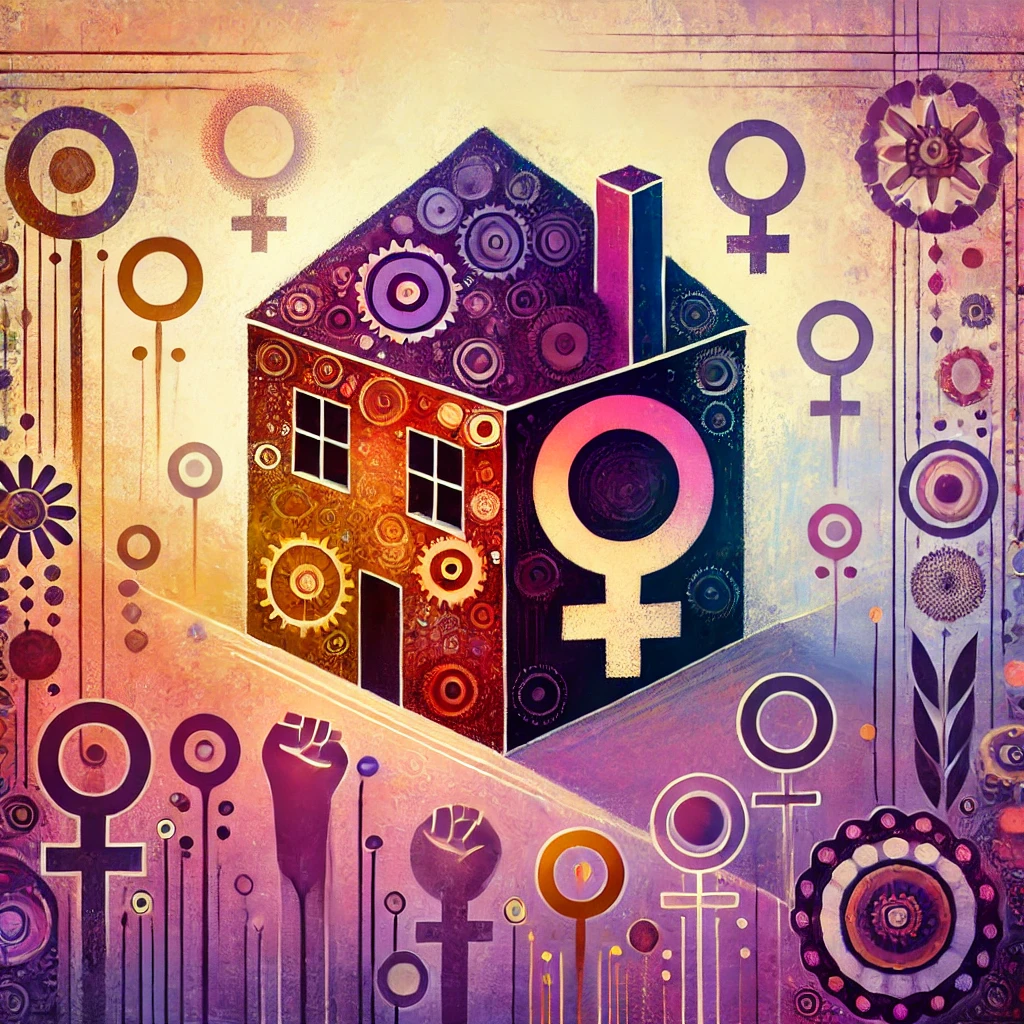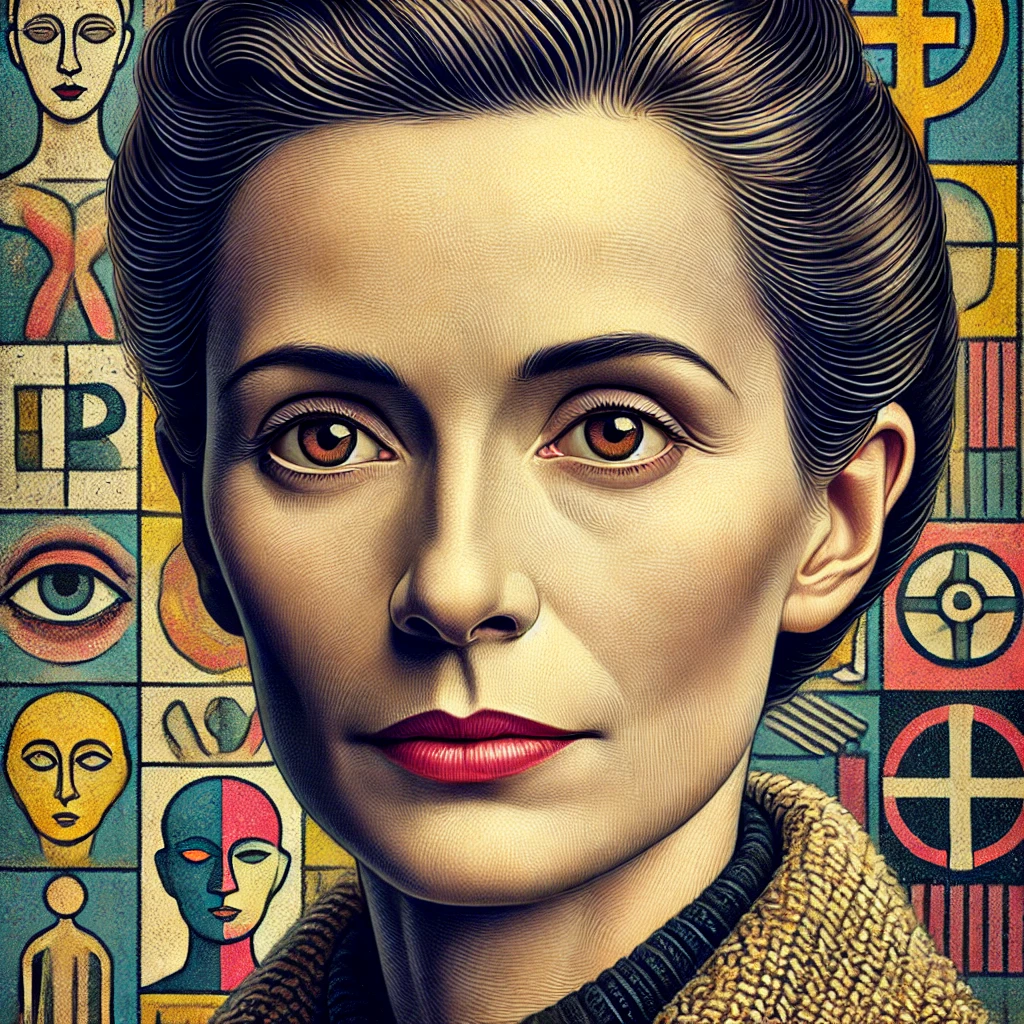Feminism

Place of Origin: Global (origins in Europe and North America)
Century of Origin: 18th-21st Century CE
Associated Philosophers:
Overview of Feminism
Feminism is both a philosophy and a social movement aimed at achieving equality for women and challenging the way society treats people based on their gender. It focuses on making sure women have the same rights, opportunities, and respect as men. Feminists believe that society has historically favored men, creating unfair systems that limit women’s choices and opportunities. Feminism seeks to change this by addressing issues like unequal pay, lack of representation in leadership roles, and harmful stereotypes about gender. It also works to make the world more inclusive for people of all genders, not just men and women.
Feminist metaphysics examines how ideas about gender shape our reality and how society creates categories like 'male' and 'female.' Feminists question traditional views that treat gender as something fixed or natural. They argue that many ideas about gender come from cultural expectations rather than biology. This means that gender roles, like the idea that women should be caring and men should be strong, are created by society and can change. Feminists push for a world where people can define themselves beyond these roles.
Feminist epistemology studies how knowledge is shaped by gender and who gets to define what counts as important knowledge. Historically, most knowledge, especially in fields like philosophy and science, has been shaped by men, often leaving out women’s voices and experiences. Feminists argue that this creates a biased view of the world. They believe that including women’s perspectives, and those of marginalized groups, leads to a more complete and fair understanding of the world.
Feminist ethics focus on equality, fairness, and care for others. Feminists argue that traditional ethical systems often reflect male experiences and overlook women’s concerns, such as the importance of relationships and caregiving. They believe that ethics should value empathy, kindness, and the voices of everyone, not just those in power. Feminists also emphasize how gender, race, and class intersect, and how we must consider these when thinking about justice and fairness.
Feminists use logic to challenge unfair assumptions and stereotypes about gender. They argue that many common beliefs, like the idea that men are naturally better leaders or that women are more emotional, aren’t based on facts but on outdated stereotypes. By using critical thinking, feminists expose how these beliefs are used to justify inequality and argue for a more logical, evidence-based approach to understanding gender differences.
Feminist aesthetics explore how art, media, and beauty standards reflect and shape ideas about gender. Feminists argue that traditional ideas of beauty often promote unrealistic standards that harm women, such as the pressure to look a certain way or behave in a 'feminine' manner. They push for more diverse and inclusive representations of beauty and gender, showing that people can be beautiful in many different ways. Feminist art often challenges stereotypes and celebrates individuality and empowerment.
Feminists use critical analysis and activism to challenge gender inequality. They examine how social systems and traditions reinforce gender roles and push for changes that promote equality. Feminists also value personal experiences and stories as sources of knowledge, especially when these stories show how people are affected by gender inequality. This method combines theory with practical efforts to make the world more equal for all genders.
Feminists believe that all humans, regardless of gender, should be treated equally and given the same opportunities to succeed. They argue that society’s traditional gender roles limit people’s potential by placing unfair expectations on both men and women. Feminists work to break down these stereotypes, emphasizing that gender is socially constructed and that people should be free to express themselves in ways that feel true to them, without being restricted by societal norms.
Feminist political philosophy is focused on achieving equality in all areas of society, especially in politics, education, and the workplace. Feminists believe that gender should not determine a person's opportunities or rights. They fight for policies that ensure equal pay, access to education, and reproductive rights, while also working to end violence and discrimination against women and marginalized genders. Feminists argue that governments should create systems that support fairness for everyone.
Feminism has been a powerful force for change throughout history, beginning with early movements for women's suffrage, where women fought for the right to vote. In the 20th century, thinkers like Simone de Beauvoir challenged traditional ideas about women’s roles and helped shape modern feminist thought. Today, feminism continues to fight for gender equality, expanding to include issues like LGBTQ+ rights and intersectionality, which looks at how race, gender, and class together affect people's experiences of inequality.
Key themes in feminism include the fight for gender equality, challenging traditional gender roles, and making sure that everyone’s voice is heard, regardless of their gender or background. Feminists also focus on the idea of intersectionality, which looks at how different aspects of a person’s identity, like their gender, race, or class, can affect their experience of inequality and injustice.
Simone de Beauvoir is one of the most influential feminist philosophers, known for her work 'The Second Sex,' where she argued that women had been treated as 'the other' in society. Judith Butler is another key thinker, known for her ideas on gender as something we perform, rather than something that is fixed. Other important feminists include bell hooks, who writes about how race, gender, and class affect people’s experiences, and Mary Wollstonecraft, who advocated for women’s rights in the 18th century.






